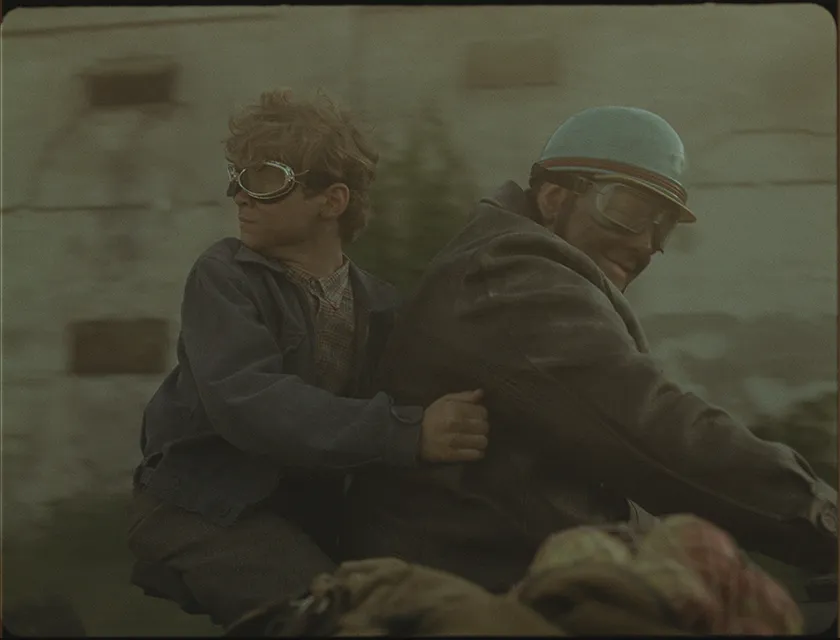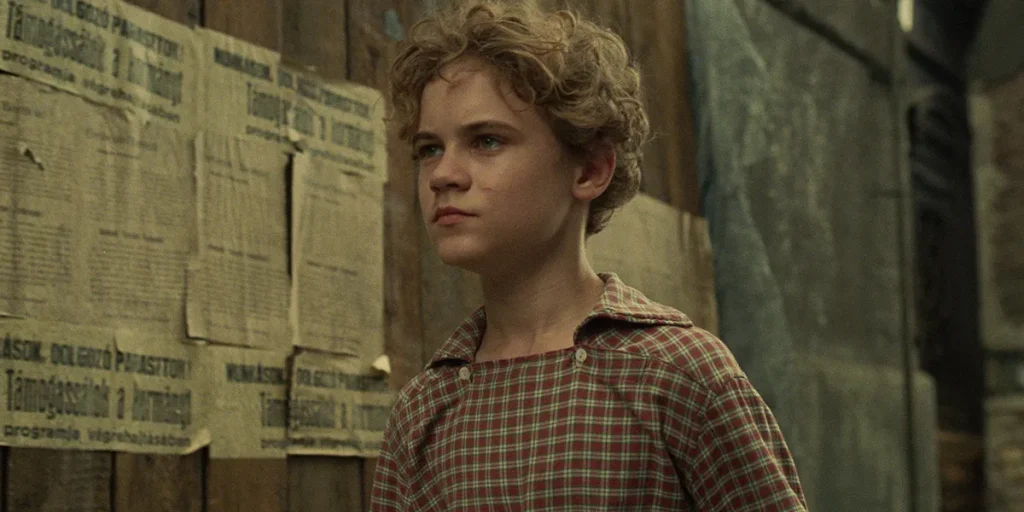László Nemes’ stirring historical drama Orphan takes a long time to let its themes flourish, but they do so with undeniable confidence.
Director: László Nemes
Original Title: Árva
Genre: Biographical, Drama, History
Run Time: 132′
Venice World Premiere: August 28, 2025
TIFF Screening: September 9, 2025
Release Date: TBA
Whenever an acclaimed filmmaker returns to a genre where they’ve found immense success before, there’s always a risk that they’ll end up treading water and fail to break any new ground. Though it seemed like László Nemes’ new wartime drama Orphan (Árva) may end up going down that route, with its evident aesthetic similarities to his breakthrough feature Son of Saul, the director thankfully manages to avoid the trap. Instead, Orphan forges its own clear identity from the first moments, but the film struggles to fully capitalize on that distinct tone until its riveting final act.
Set to the backdrop of post-war Hungary, Orphan follows a young boy named Andor (Bojtorján Barábas) who lives alone with his mother (Andrea Waskovics) after losing the man he believed to be his father during the war. But when Andor’s real father (Grégory Gadebois) returns to Budapest several years later, the young boy struggles to accept that his family is built upon the lies and exploitation of war.
The most striking aspect of Orphan, and something that Nemes has displayed an aptitude for throughout his filmography to date, is the masterful camerawork and gorgeous, desaturated visuals. The film is extremely dynamic with its extensive tracking shots, intimate close-ups, and fluid camera movements – yet somehow manages to avoid feeling indulgent or permissive in using these visual tricks. It creates such an immersive, vivid atmosphere that blends perfectly with the rich production design to place the audience right in the middle of this bleak cityscape, which in turn makes these characters and their tragedies feel infinitely more tangible.

Orphan is an unabashedly simple story, taking the character of Andor and framing the entire narrative through his eyes. Although this admittedly leaves some of the other figures in his life feeling somewhat underdeveloped as a result, it’s a really effective way of getting the audience to relate to him and understand his plight from the very beginning. There’s a real depth to his development as the story progresses, and Orphan does a brilliant job of channeling its key themes through him. It goes a step beyond merely depicting how parasitic the Soviet regime was throughout eastern Europe – it makes the audience feel it by using Andor as a vessel for this sharp commentary.
While this poignant analysis of war, generational trauma, and ethnic exploitation is easily the most compelling and memorable aspect of Orphan, it admittedly takes a long time for these ideas to shine through the film’s otherwise simple and one-noted story. The first half of Orphan struggles to distinguish itself, beyond the visual prowess, from many other films within the genre, following the day-to-day lives of this broken family as they navigate the personal and economic struggles of post-war Hungary. While it’s clear that Nemes is using this apparently banal story structure to make the film’s ultimate thrust into chaos even more effective, it demands a lot of patience and trust from the audience.
The crux of Orphan is ultimately Andor’s relationship with his biological father, and more specifically, the way in which their domestic conflict mirrors the political and generational conflict that characterized this particular time in history. These ideas propel themselves effortlessly towards a brilliantly moving conclusion, but it’s not until the half-way mark that this conflict really begins to take shape and the true intentions of this story become clear. Everything that comes before that shift is rendered fairly obsolete as a result – and in a film whose runtime already exceeds two hours, that’s a very large hurdle to jump.
When Orphan really knows what it wants to be, the film is an undeniably compelling piece of storytelling that balances the line perfectly between dramatic sentimentality and sharp, abrasive commentary. It’s a film that clearly rewards patience, but at the same time, doesn’t entirely justify why that slow, disjointed storytelling is necessary to make the end product work. At the very least, Orphan’s staggering visual language and craftmanship are more than enough to make this potent war drama an interesting, approachable addition to the genre.
Orphan (Árva): Movie Plot & Recap
Synopsis:
1957. In Budapest, after the uprising against the Communist regime, a young Jewish boy, Andor — raised by his mother with idealised tales of his deceased father — has his world turned upside down when a brutish man appears, claiming to be his true father.
Pros:
- Fierce, loaded visuals that use their desaturated color palette in a very memorable and striking way.
- Immersive, character-driven storytelling that quickly hooks the audience emotionally.
- A punchy, rewarding ending that wraps up the film’s key themes efficiently and succinctly.
Cons:
- A delayed, disjointed first half that doesn’t make the most of its sharp potential.
- An unwavering focus on Bojtorján Barábas’ protagonist that leaves certain side characters underdeveloped.
Orphan (Árva) had its World Premiere at the Venice Film Festival on August 28, 2025. The film will be screened at TIFF on September 9.

